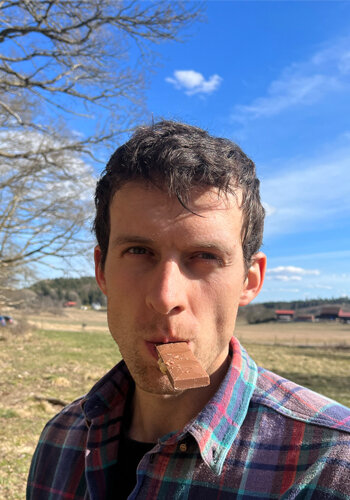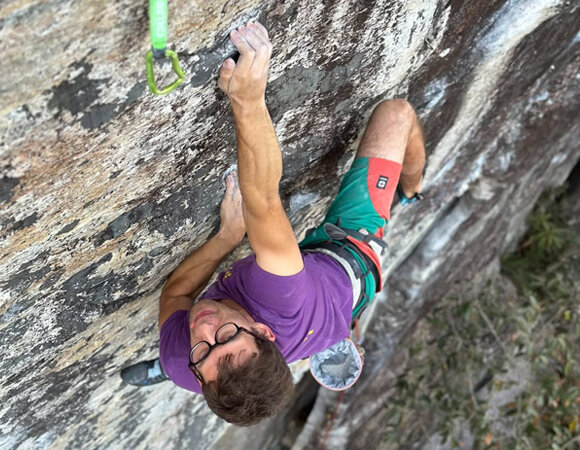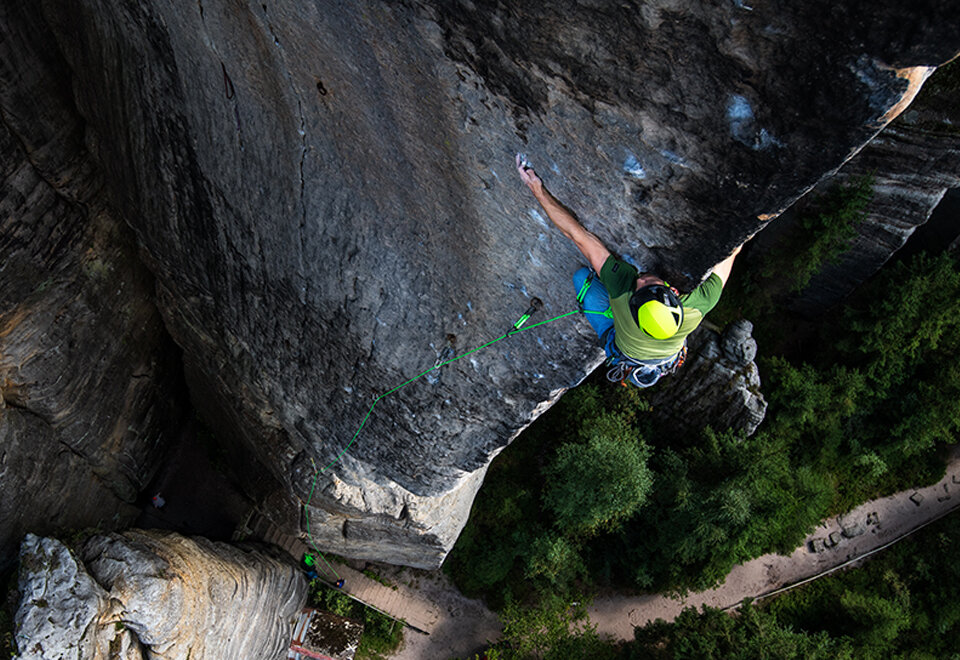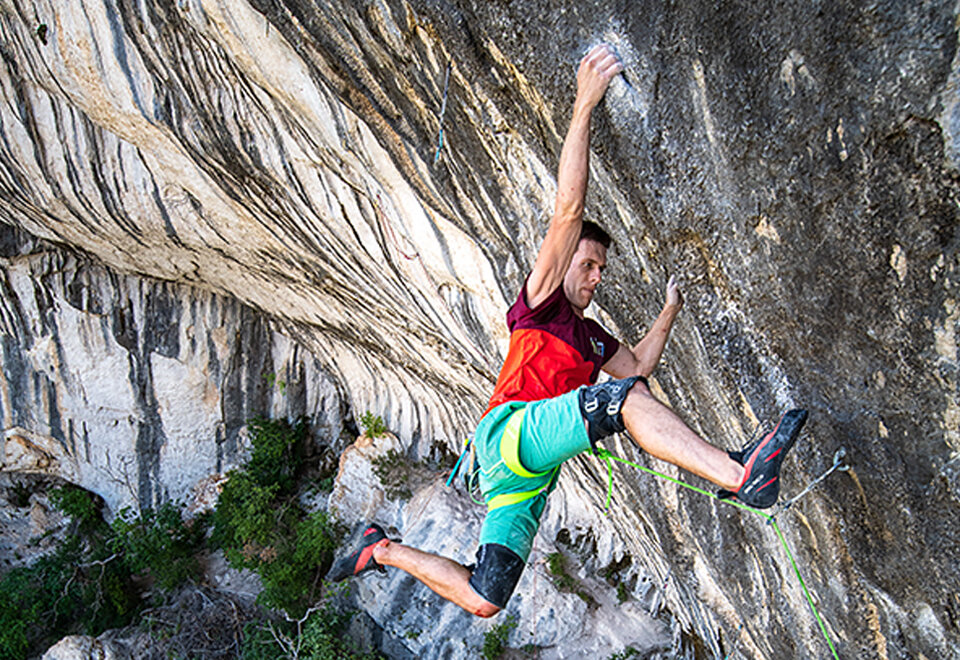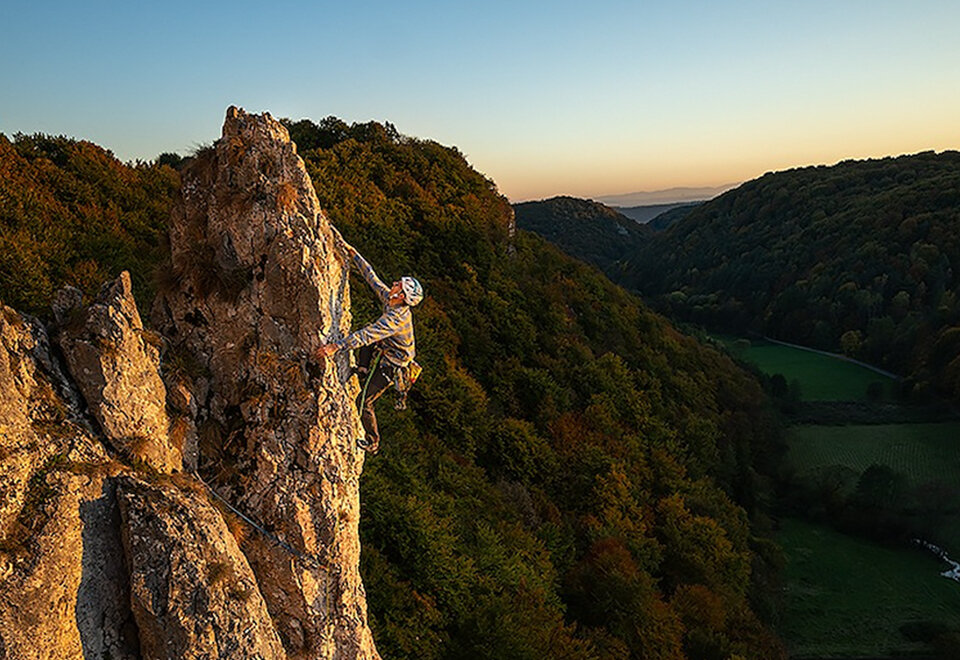When and how did you get into climbing? What keeps you interested? What fascinates you?
A friend of mine proposed a one-day trip to the crag near our town, and that was it. Since then, I have always wanted to be better at climbing, and I loved spending time with other climbers at the crags. Not much later, I started to discover new places and new types of climbing, which made me even more fascinated. What exactly made me enter so deeply into this kind of lifestyle? I keep asking myself this question, but I have never found a proper answer.
Who was your childhood hero? Do you consider yourself a role model now? Does it influence you at all that other people look up to you?
I was a skateboarder, so my childhood hero was Tony Hawk, of course :) It’s always nice to be admired, although I don’t think there are many moments when I feel that I am. It certainly motivates me a lot, however, it is also a bit stressful, as I know I shouldn’t fail.
What have been the most important milestones in your life so far, both in climbing and in everyday life? And did you recognize them immediately as such or only later on?
Definitely, the time when I started climbing was a significant milestone. Since then, my life has changed to a great extent, and my priorities have been reorganised. Another milestone was when I met my girlfriend, Ida. That also had a profound impact on my life in a very positive way. As we share a similar drive for adventures and climbing, everything was elevated to the next level.
What were your greatest failures / setbacks / injuries? How did you cope with them and how did you come back from them?
Fortunately, I've had no serious injuries, and I hope I'll be able to say the same at the end of my career. Regarding failures on climbing projects, I experience some every year. Sometimes the effort I put in is big, and I definitely feel a bit frustrated, however, I have never had very negative emotions. Success often depends on the weather or other conditions, and we often face time constraints, so there’s no need to worry too much. Ultimately, what matters most is how much we gained or learned, and how much joy we experienced.
What is your favourite climbing-related story / experience?
Together with my friend Michał, we went on a climbing trip to Taghia in Morocco. One day we decided to climb a 7c, around 300 meters high. The climbing went fine and we managed to finish it by the end of the day, but the route didn’t end at the top of the mountain, so we decided to go to the peak rather than rappel down the route. As we got to the top, it started getting dark, so after a dozen minutes spent taking silly photos, we began looking for our way back to the gîte (the place where we were sleeping).
It turned out that finding the descent at night wasn’t so easy, especially with only a little information and a tiny two-square-centimeter map with just a few lines that whoever drew it probably thought would be enough. We wandered for a few hours in the direction we presumed was ours until we stumbled upon a big plateau, where we tried almost every direction, but none seemed promising. Exhausted and thirsty as hell, we decided to spend the night there. One thin down jacket and one Gore-Tex jacket for the two of us weren’t enough to call it a warm and convenient bivy.
Michał decided to send a text message to the gîte owner, Ahmed, so he wouldn’t be worried and waiting to serve us dinner. Despite our willingness to sleep, we spent most of the night shivering from the cold… A few hours later, some voices caught our attention. It was a man searching for us – Ahmed's brother, who had come to show us the way down. He must have decided to help after he saw our message. Satisfying our thirst with the water he brought, we went down with his help. Worth mentioning was how agile he was on the descent: he would run ahead about 50 meters, then wait for us as we slowly scrambled down through the boulders… and then run ahead again.


